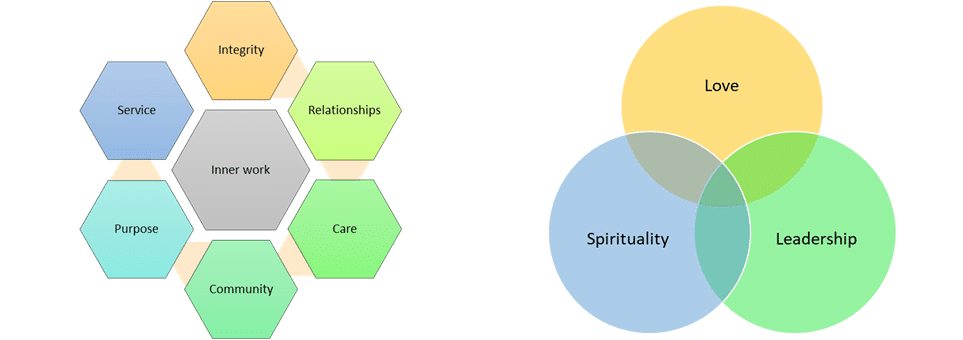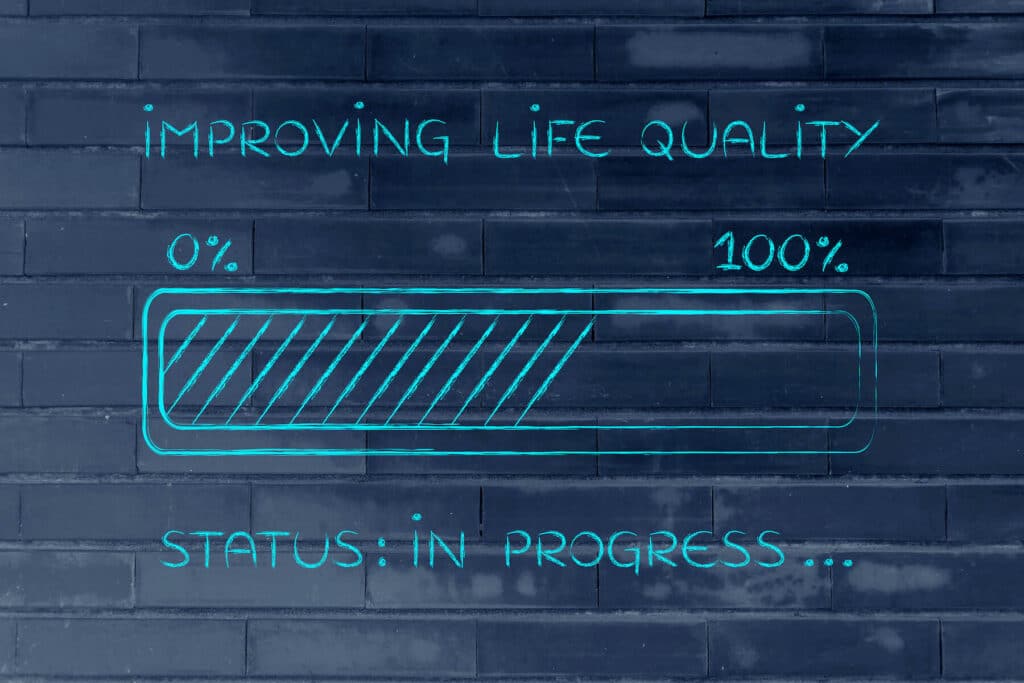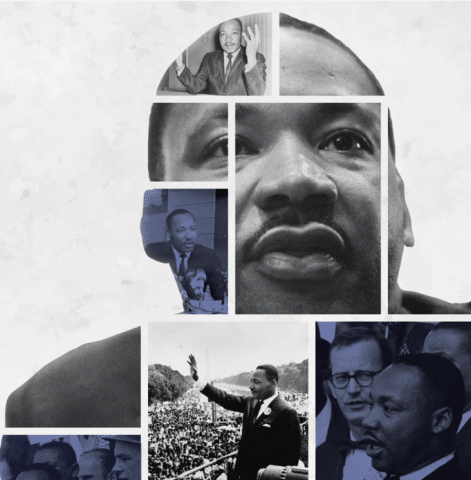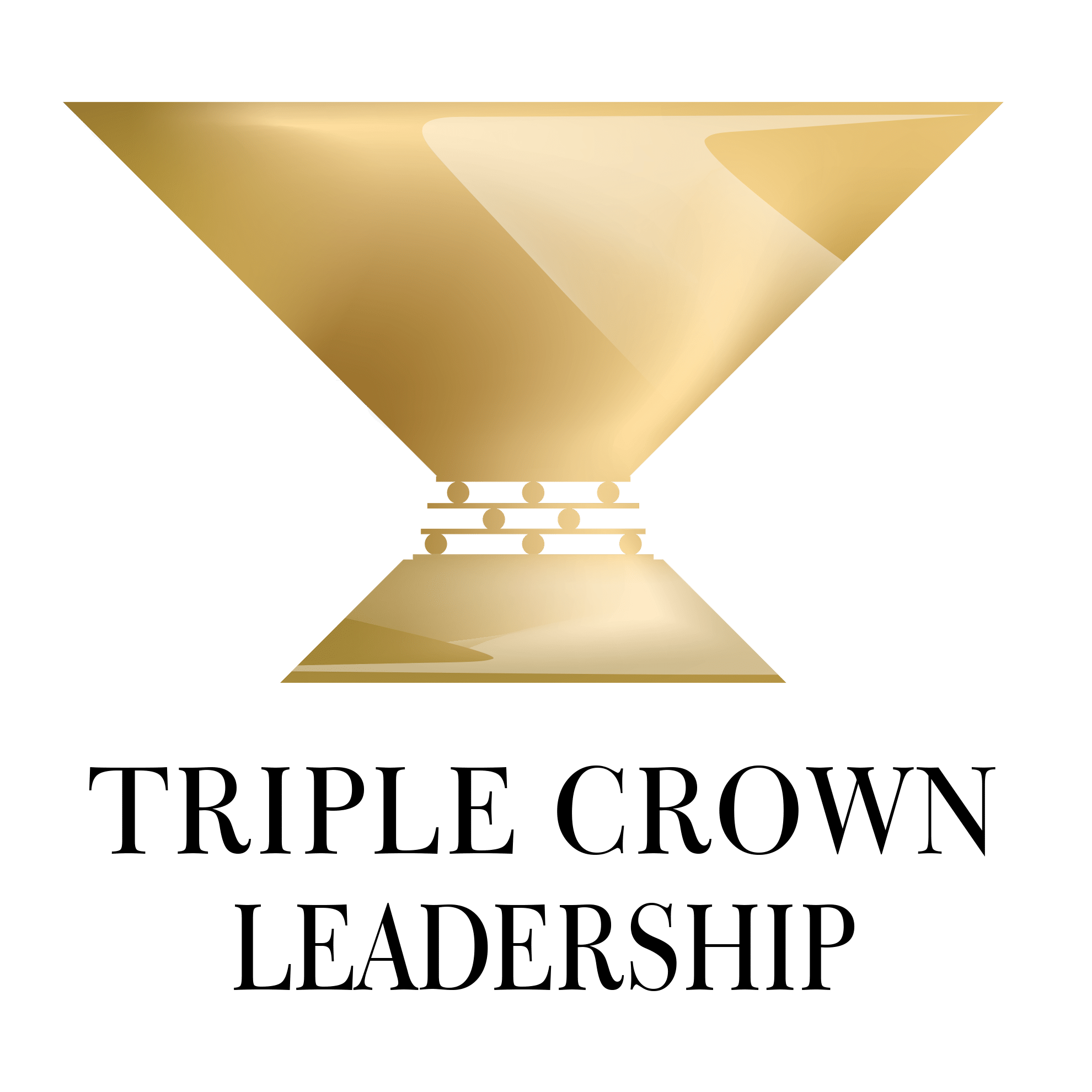Article Summary:
Here we profile Martin Luther King, Jr. as an example of someone who has incorporated spirituality into his leadership with great effect. (This is part of a series on spirituality and leadership.)
+++
In recent articles, we covered “Spirituality and Leadership—Leading with Heart and Love” and “How to Bring Spirituality into Your Leadership.” We noted that there are seven aspects of spirituality that can be applied to leading—and that love is an important part of the equation when people incorporate spirituality into their leadership. See the images below.

Here we profile Martin Luther King, Jr. as a powerful example of someone who has incorporated spirituality into his leadership. Dr. King, of course, isn’t perfect. None of the leaders we cite are perfect, but their examples are instructive and inspiring.

Leadership Derailers Assessment
Take this assessment to identify what’s inhibiting your leadership effectiveness. It will help you develop self-awareness and identify ways to improve your leadership.
Background
Dr. Martin Luther King, Jr. (MLK, 1929-1968) was a Baptist minister and activist who became one of the most prominent leaders in the U.S. civil rights movement. Inspired by his own religious beliefs and by Gandhi, Dr. King advocated nonviolence and civil disobedience. He fought racial discrimination and advocated for voting and labor rights as well as desegregation. He fought for poor and working people around the world as well as for black people.
King’s contemplation and prayer led him to take decisive action in the world as a church leader. The Civil Rights Act of 1964, Voting Rights Act of 1965, and Fair Housing Act of 1968 were top accomplishments of the civil rights movement. He won the Nobel Peace Prize and was posthumously awarded the Presidential Medal of Freedom.
Here is Dr. King in his own words from some of his sermons, speeches, and writings:
- “Darkness cannot drive out darkness; only light can do that. Hate cannot drive out hate; only love can do that.”
- “I have decided to stick with love. Hate is too great a burden to bear.”
- “Love is the only force capable of transforming an enemy into friend.”
- “I believe that unarmed truth and unconditional love will have the final word in reality. This is why right, temporarily defeated, is stronger than evil triumphant.”
- “Power without love is reckless and abusive, and love without power is sentimental and anemic. Power at its best is love implementing the demands of justice, and justice at its best is power correcting everything that stands against love.”
- “Forgiveness is not an occasional act. It is a permanent attitude.”
- “We must develop and maintain the capacity to forgive. He who is devoid of the power to forgive is devoid of the power to love. There is some good in the worst of us and some evil in the best of us. When we discover this, we are less prone to hate our enemies.”
- “We shall match your capacity to inflict suffering by our capacity to endure suffering. We shall meet your physical force with soul force. Do to us what you will, and we shall continue to love you…. One day we shall win freedom, but not only for ourselves. We shall so appeal to your heart and conscience that we shall win you in the process, and our victory will be a double victory.”
- “I don’t march because I like it. I march because I must.”

Take the Traps Test
We all fall into traps in life. Often we’re not even aware of them. Check out these common traps of living to see what’s inhibiting your quality of life and fulfillment.
The Dream
Dr. King’s acclaimed “I Have a Dream” speech in 1963, which was deeply informed by his religious beliefs, was witnessed in person by some 250,000 people that day and had a profound effect on the nation.
Toward the end of the speech, gospel singer Mahalia Jackson cried out to him from the crowd, “Tell them about the dream Martin!” In response, King went off-script and did some improvising. Here are excerpts from King’s iconic speech:
“I have a dream that my four little children will one day live in a nation where they will not be judged by the color of their skin but by the content of their character….
This is our hope. This is the faith that I go back to the South with. With this faith, we will be able to hew out of the mountain of despair a stone of hope. With this faith we will be able to transform the jangling discords of our nation into a beautiful symphony of brotherhood. With this faith we will be able to work together, to pray together, to struggle together, to go to jail together, to stand up for freedom together, knowing that we will be free one day….
And when this happens, and when we allow freedom to ring, when we let it ring from every village and every hamlet, from every state and every city, we will be able to speed up that day when all of God’s children, Black men and white men, Jews and Gentiles, Protestants and Catholics, will be able to join hands and sing in the words of the old Negro spiritual: Free at last. Free at last. Thank God almighty, we are free at last.”
-from MLK’s “I Have a Dream” speech
Facing Threats and Fears
In a sermon called “Our God is Able,” King said the following about the threats he and his family had been getting:
“Almost immediately after the Montgomery bus protest had been undertaken, we began to receive threatening phone calls and letters in our home. Sporadic in the beginning, they increased day after day. At first I took them in my stride, feeling they were the work of a few hotheads who would become discouraged after they discovered that we would not fight back. But as the weeks passed, I realized that many of the threats were in earnest. I felt myself faltering and growing in fear.
After a particularly strenuous day, I settled in bed at a late hour… and was about to doze off when the telephone rang. An angry voice said, ‘Listen, (expletive), we’ve taken all we want from you. Before next week you’ll be sorry you ever came to Montgomery.’ I hung up, but I could not go to sleep. It seemed all my fears had come down on me at once. I had reached the saturation point.
I got out of bed and began to walk the floor. Finally, I went to the kitchen and heated a pot of coffee. I was ready to give up. I tried to think of a way to move out of the picture without appearing to be a coward. In this state of exhaustion, when my courage had almost gone, I took my problem to God. My head in my hands, I bowed over the kitchen table and prayed aloud. The words I spoke to God that midnight are still vivid in my memory.
‘I am here taking a stand for what I believe is right. But now I am afraid. The people are looking to me for leadership, and if I stand before them without strength, they too will falter. I am at the end of my powers. I have nothing left. I have come to the point where I can’t face it alone.’
At that moment I experienced the presence of the Divine as I had never experienced him. It seemed as though I could hear the quiet assurance of an inner voice, saying, ‘Stand up for righteousness, stand up for truth. God will be at your side forever.’
Almost at once my fears passed from me. My uncertainty disappeared. I was ready to face anything. The outer situation remained the same, but God had given me inner calm.
Three nights later, our home was bombed. Strangely enough, I accepted the word of the bombing calmly. My experience with God had given me a new strength and trust. I knew now that God is able to give us the interior resources to face the storms and problems of life.”

Quality of Life Assessment
Evaluate your quality of life in ten key areas by engaging with our assessment. Find your strongest areas, and the areas that need work, then plan accordingly!
The Night Before He Was Shot
On the night before his assassination, here’s what Dr. King said in his final speech, “I’ve Been to the Mountaintop,” in Memphis, Tennessee:
“Well, I don’t know what will happen now. We’ve got some difficult days ahead. But it doesn’t matter with me now. Because I’ve been to the mountaintop. And I don’t mind. Like anybody, I would like to live a long life. Longevity has its place. But I’m not concerned about that now. I just want to do God’s will. And He’s allowed me to go up to the mountain. And I’ve looked over. And I’ve seen the promised land. I may not get there with you. But I want you to know tonight, that we, as a people, will get to the promised land. And I’m happy, tonight. I’m not worried about anything. I’m not fearing any man. Mine eyes have seen the glory of the coming of the Lord.”
Reflection Questions
- Has Martin Luther King, Jr. inspired you?
- In what ways?
- How might you incorporate spirituality into your leadership?
Tools for You
- Leadership Derailers Assessment to help you identify what’s inhibiting your leadership effectiveness
- Personal Values Exercise to help you determine and clarify what’s most important to you
- Alignment Scorecard to help you assess your organization’s level of alignment

Personal Values Exercise
Complete this exercise to identify your personal values. It will help you develop self-awareness, including clarity about what’s most important to you in life and work, and serve as a safe harbor for you to return to when things are tough.
Related Articles
- “On Spirituality and Leadership—Leading with Heart and Love”
- “How to Bring Spirituality into Your Leadership”
- “Spirituality and Leadership in Action—Historical Examples”
- “Spirituality and Leadership in Action—Modern Examples”
- “The Case for Love-Based Leadership”
- “How to Bring Love-Based Leadership to Your Workplace”
- “Love-Based Leadership in Action”
(See also our series on servant leadership.)

Triple Crown Leadership Newsletter
Join our community. Sign up now and get our monthly inspirations (new articles, announcements, opportunities, resources, and more). Welcome!
+++++++++++++++++++++++
Gregg Vanourek and Bob Vanourek are leadership practitioners, teachers, and award-winning authors (and son and father). They are co-authors of Triple Crown Leadership: Building Excellent, Ethical, and Enduring Organizations, a winner of the International Book Awards. Check out their Leadership Derailers Assessment or get their monthly newsletter. If you found value in this, please forward it to a friend. Every little bit helps!


